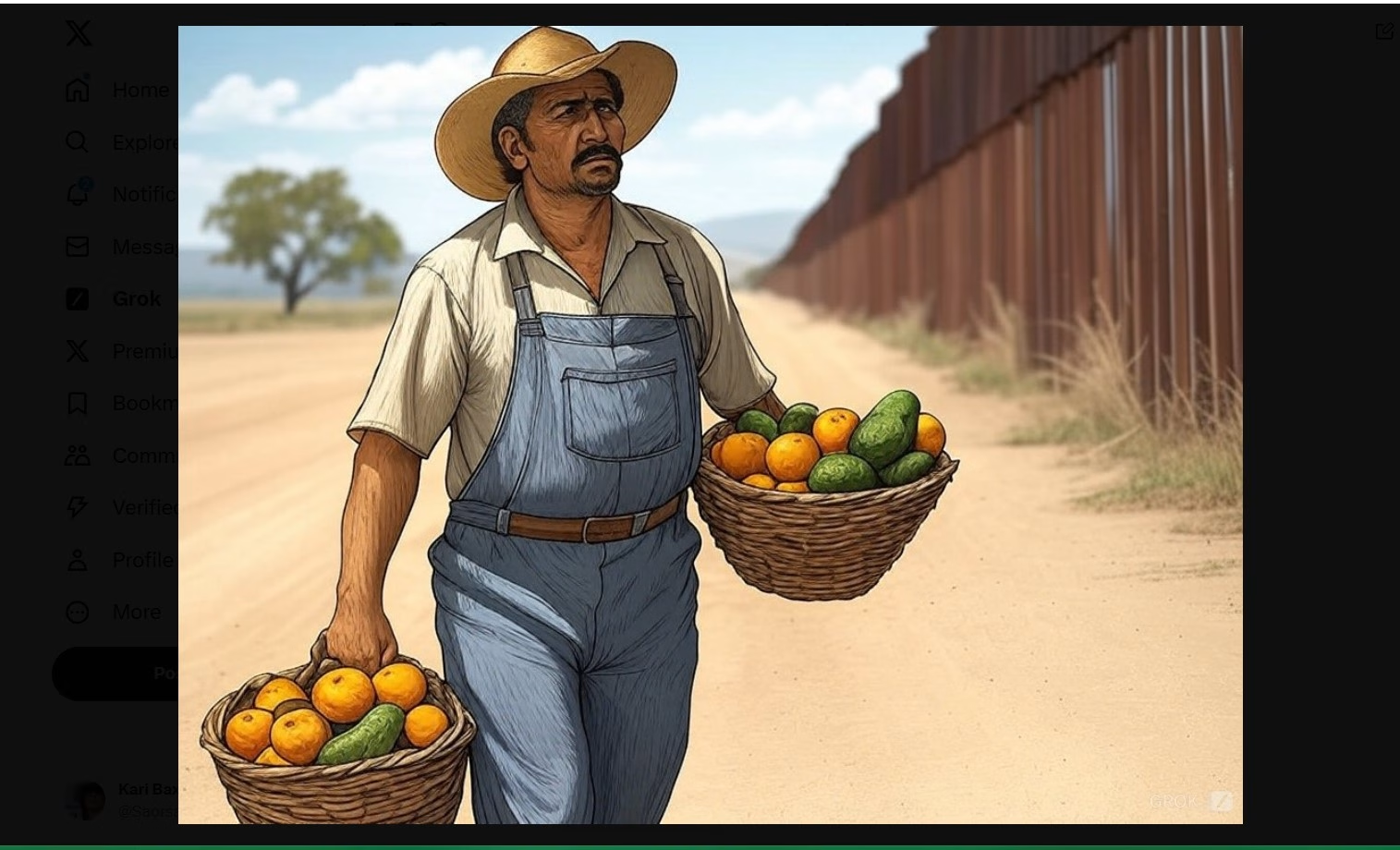Summary:
In a passionate social media post, Ben Bergquam highlights cartel exploitation of American farmers in California’s Central Valley. He warns against buying stolen cartel fruit, emphasizing the millions they rake in from illegal activities. His message is clear: before expanding legal migration programs like H-1B visas, America must prioritize halting illegal immigration and holding criminals accountable.
Full Commentary:
Ben Bergquam doesn’t mince words when exposing the darker side of illegal immigration. In his latest post, he zeroes in on an unexpected yet deeply troubling issue: cartel-stolen fruit. Operating in California’s Central Valley, cartels are not just smuggling drugs and people—they’re exploiting American farmers and profiting massively from stolen produce. Bergquam’s warning to avoid buying this fruit isn’t just about consumer choices—it’s a wake-up call about the widespread impact of illegal immigration and cartel operations.
Bergquam ties his message to broader concerns about border security and national sovereignty. He underscores how cartels operate with impunity, making millions while American farmers and workers pay the price.
Bergquam’s solution? A step-by-step plan that prioritizes immediate action and accountability:
- Stop the bleeding. Prevent further illegal entry by ending programs like CBP1, reinstating the “Remain in Mexico” policy, and cutting off funding to organizations aiding illegal immigration.
- Deportation matters. Those who are here illegally must be sent back to their home countries.
- Treat cartels as terrorists. Designate cartels as terrorist organizations and unleash military force to dismantle their operations.
- Punish traitors. Politicians and officials who facilitated illegal migration must be prosecuted.
- Defund sanctuary policies. Sanctuary cities and states should lose funding, and politicians blocking ICE from doing its job should face legal consequences.
- Tax remittances. Impose a 100% tax on money sent abroad to deter the flow of cash to cartel-affiliated countries.
Bergquam’s final point is about the future of immigration. He stresses that only after dismantling the system enabling illegal migration should the U.S. consider inviting immigrants who add value to society and embrace American values. For him, assimilation and respect for the law are non-negotiable.
The Bigger Picture:
This isn’t just about fruit—it’s a symbol of how far-reaching the consequences of unchecked illegal immigration are. From stolen produce to cartel violence, the crisis affects everyone. Bergquam’s fiery rhetoric reflects frustration with current policies and a demand for immediate change.
